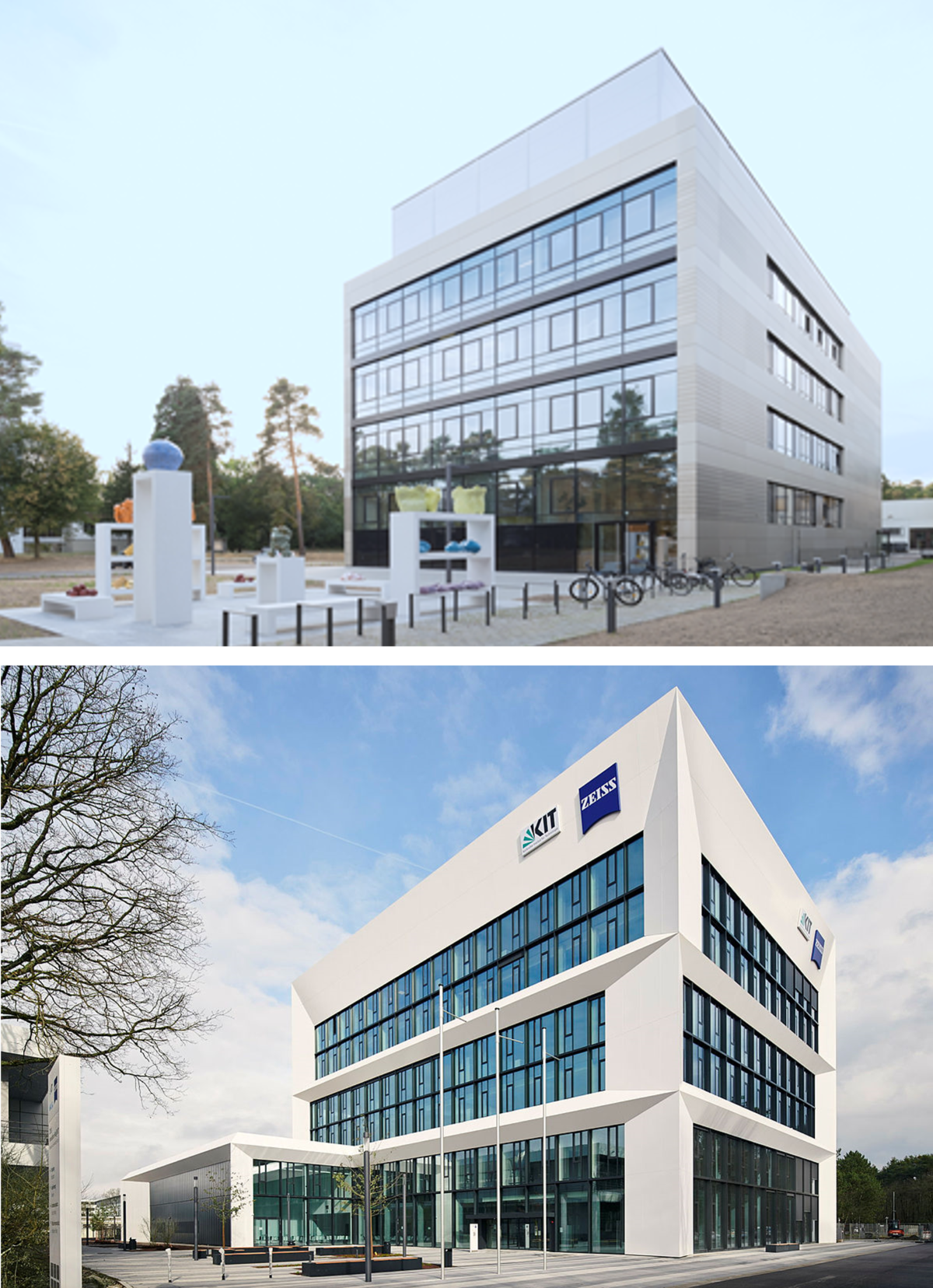
Meet our interdisciplinary team
Team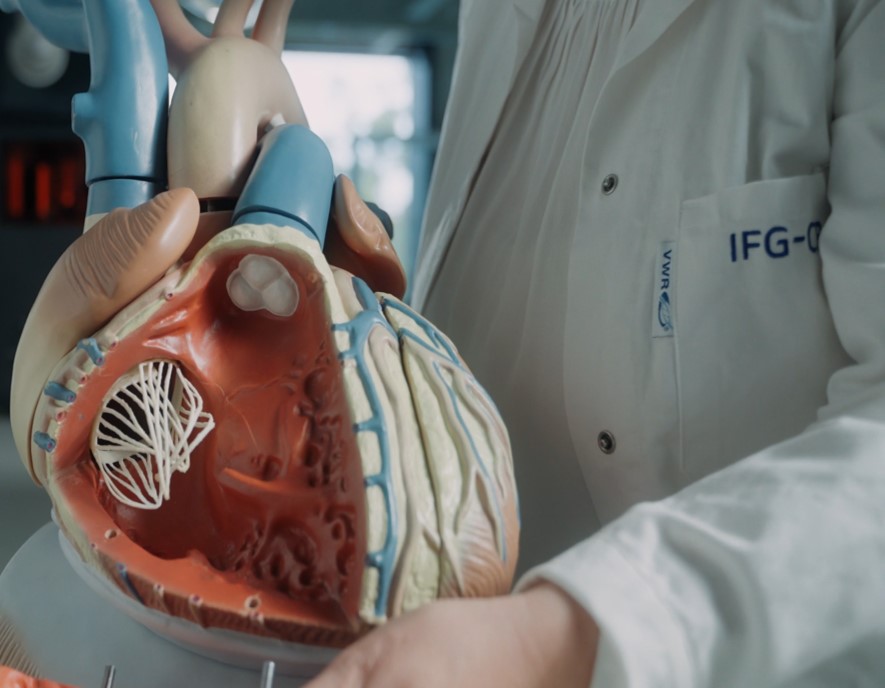
Have a look at our research & focus areas
Research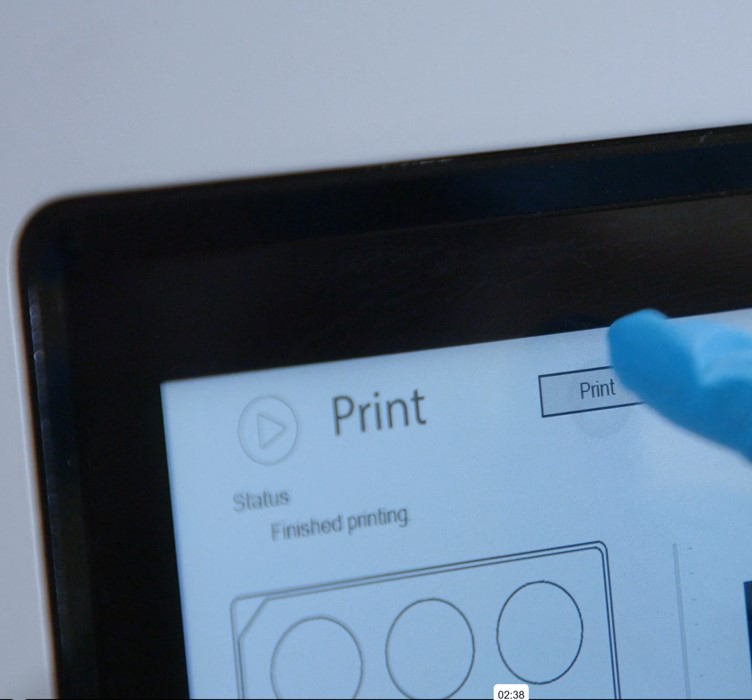
See our latest publications
Publications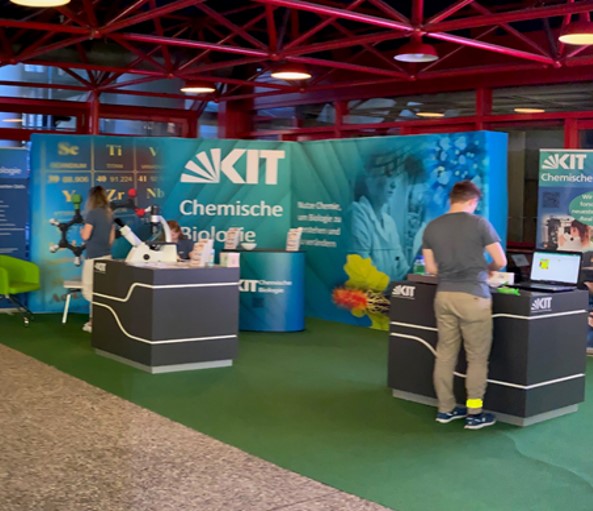
Discover our teaching program
TeachingOur Focus
Our research is situated at the interface of chemical biology, materials science biomedical engineering and health technologies. We focus on a wide range of interdisciplinary research topics including:
![]() Organ-specific drug delivery
Organ-specific drug delivery
![]() Autonomous reconstruction of organoids and 3D tissues
Autonomous reconstruction of organoids and 3D tissues
![]() AI-driven development of innovative biomaterials for the 3D bioprinting of entire organs and tissues
AI-driven development of innovative biomaterials for the 3D bioprinting of entire organs and tissues
Precise organ-specific drug delivery is only possible if realistic test systems such as organoids or artificially reconstructed 3D tissues on so-called organs-on-a-chip are available. We are therefore developing autonomous and AI-controlled processes for the automatic production of these biological models. At the same time, we are optimizing the material properties and manufacturing processes of high-precision biomaterials in self-driving labs using artificial intelligence in order to create functional, customizable inks for 3D bioprinting and thus enable new approaches in regenerative medicine and drug research. A particular focus is on biocompatible materials for the 3D printing of individualized heart valves, corneas and other functional tissue structures for organ-on-chip systems. Our research ranges from high-throughput experiments to identify optimal material properties through to validation in animal models. Our research thus makes an important contribution to the further development of personalized therapeutic approaches.
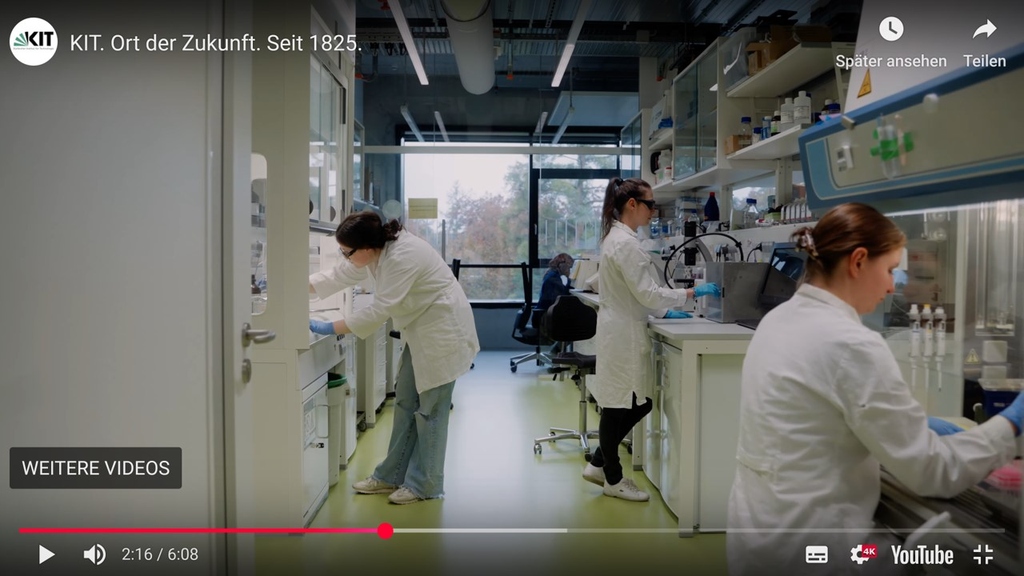
KIT celebrates its history and innovative strength together with stakeholders from politics, business and society. Our department presented the work of our Division I . Thanks to all the students and academic scientists for their great contribution.
More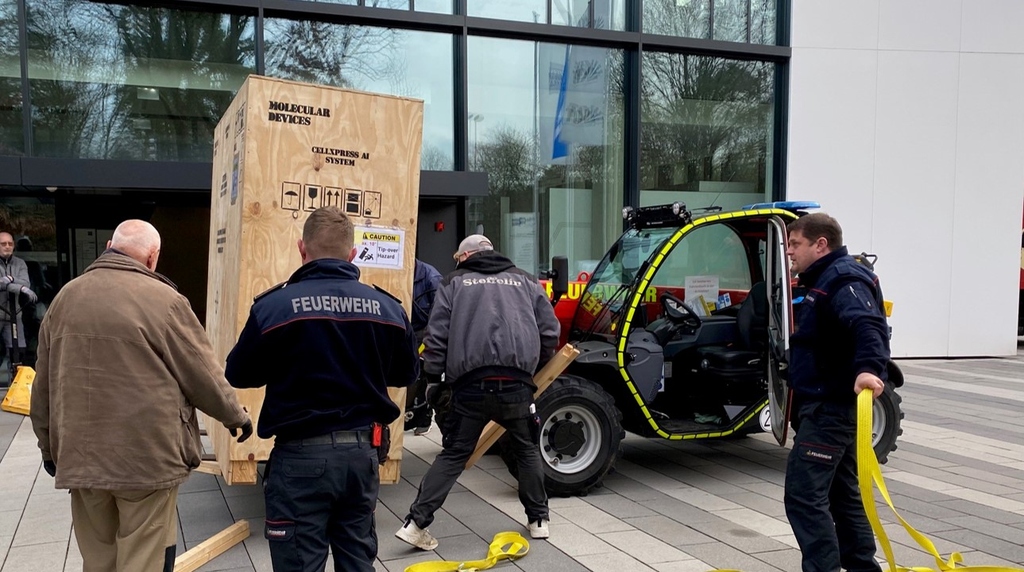
Finally our automated cell and Organoid culture system arrived at its final destination - the Zeiss Hub. It will will be part of our self-driving lab research infrastructure Bio.LAB and the HELMHOLTZ Acceleration Alliance (HELMA).
More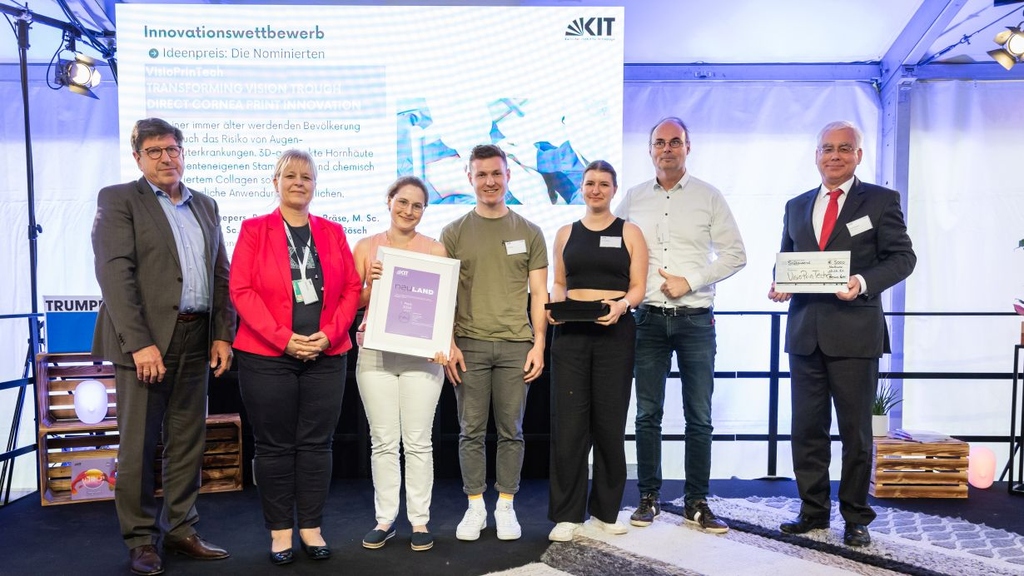
Printing a new cornea during an operation to restore a patient’s eyesight: This groundbreaking step in the fight against corneal disorders is set to become reality with a laser based process using personalized bioink. The method was developed by researchers at the Karlsruhe Institute of Technology (KIT) in collaboration with Carl Zeiss Meditec AG and Evonik Healthcare. Their project won the idea award in this year’s NEULAND innovation contest.
More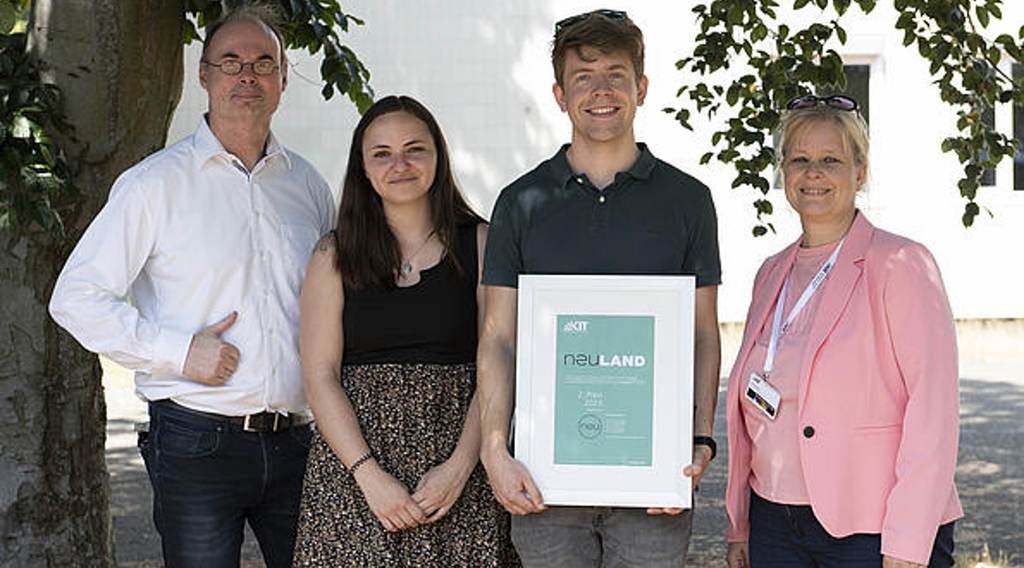
The Schepers lab won the Neuland Innovation Award (2nd place) for their "VeganValve - 3D bioprinting of personalized organic heart valves and cartilage implants made from vegan gelatin materials"
More
1. Preis
„LONGCOVIDMA”
von Prof. Dr. Ute Schepers, Dr. Nicole Jung, Prof. Dr. Pavel Levkin, Prof. Dr. Stefan Bräse, Dr. Claudine Herlan, Dr. Anke Deckers, Dr. Anna Popova
Institut für Biologische und Chemische Systeme – Funktionelle molekulare Systeme (IBCS-FMS), Institut für Funktionelle Grenzflächen (IFG)


